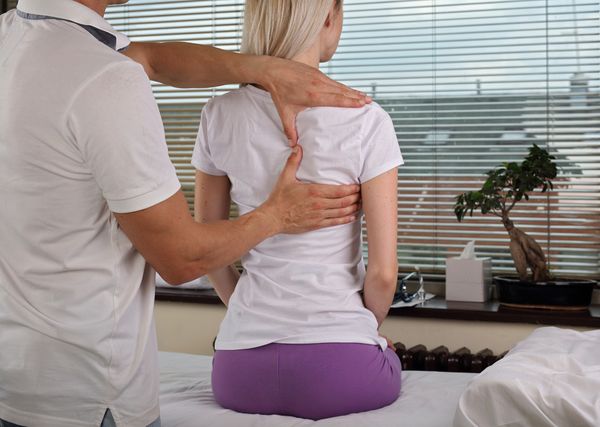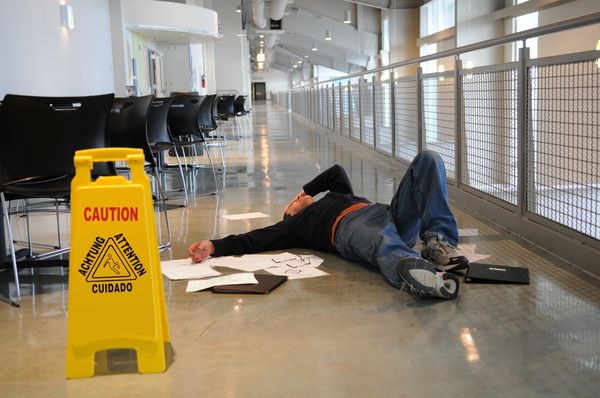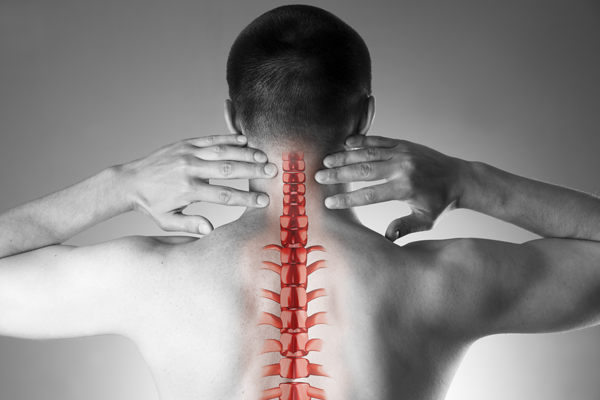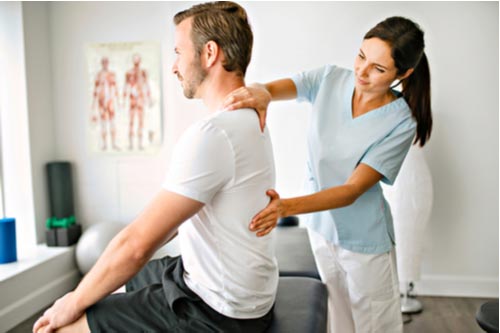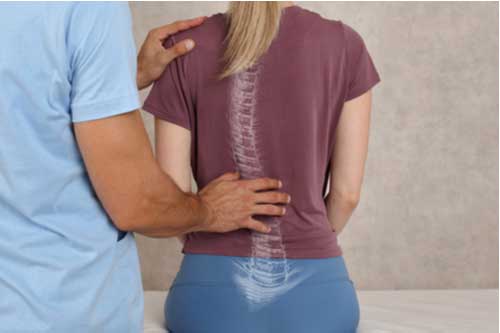- August 15, 2023

Chiropractic adjustments and physiotherapy are two of the types of treatments you may pursue for different types of scoliosis. When you come to our office, we will construct a personalized approach to your condition to help you feel better.
At Specific Care Chiropractic, our physicians help patients reduce pain and improve mobility by offering the correct diagnosis and prescribing effective treatment for their scoliosis. Contact us today for an appointment with our team by calling (239) 369-9109. We will assess your symptoms and develop a treatment plan that is right for you.
Treatments We May Prescribe for Different Types of Scoliosis
Our doctors prescribe specific adjustments and physical therapy techniques to reach our goals for patients with scoliosis. These goals could include:
- Realign their vertebrae
- Reduce stiffness
- Build strength
- Stop chronic pain
The chiropractic techniques we sometimes prescribe to address a curvature of the spine include:
- Extremity manipulation
- Diversified adjustments
- Side posture adjustments
- The Thompson Drop-Table technique
- Toggle recoil
- Sacral-occipital technique (SOT)
When a chiropractor from our team assesses your condition, they will also determine which adjustments will most likely benefit you. They could prescribe one or more of them, often paired with physical therapy techniques. These physiotherapy techniques could include:
- Massage
- Ultrasound therapy
- Electrical muscle stimulation (E-STIM)
- Stretching and strengthening exercises
- Corrective care
- Rehabilitation
What Are the Different Types of Scoliosis?
At Specific Care Chiropractic, we take a holistic approach to scoliosis treatment. We want to ensure we address the issue with your spine while also helping you build strength and flexibility to prevent future injuries and additional concerns.
Our team takes a health history, runs medical imaging, and determines the type of scoliosis you have so we can prescribe the most appropriate treatment plan. The American Association of Neurological Surgeons (AANS) recognizes several types of scoliosis. These types include:
Idiopathic Scoliosis
Idiopathic scoliosis is the most common type of scoliosis. No one knows what causes idiopathic scoliosis, so we must rule out the other causes before settling on this diagnosis. “Idiopathic” means there is no known cause. Generally, we see preteens and teenagers with the initial symptoms of idiopathic scoliosis. However, we do regularly diagnose adults with this condition, too.
Treatment options for idiopathic scoliosis include chiropractic care, physical therapy, pain management, and more. We generally work to help patients try to avoid surgery and other invasive treatments.
Congenital Scoliosis
Congenital means the scoliosis occurred before birth, and the patient was born with it. Most patients who receive this diagnosis are young children. Treatment depends greatly on your age, the severity of your scoliosis, and your symptoms.
Neuromuscular Scoliosis
Neuromuscular scoliosis occurs because of another condition, making it a secondary diagnosis. This is commonly diagnosed at a younger age than many idiopathic cases but can be initially discovered in adulthood. This type of scoliosis tends to cause long curves and affects much of the spine.
Some conditions that could cause neuromuscular scoliosis include:
- Cerebral palsy
- Muscular dystrophy
- Spinal muscular atrophy
- Spina bifida
- Polio
- Spinal cord injuries
The treatment for neuromuscular scoliosis depends on the symptoms and cause of your condition.
Degenerative Scoliosis
Degenerative scoliosis develops later in life due to wear and tear on the spine. The vertebrae, usually in the lumbar spine, no longer align properly and can lead to a curvature. This condition is most commonly diagnosed after age 65. Some doctors may point to degenerative scoliosis in any patient past this age, but other types are sometimes diagnosed much later, too.
The curvature, severity, and consideration of other health concerns affect the treatment plan of patients with degenerative scoliosis.
How Our Doctors Treat Patients With Scoliosis Symptoms
At Specific Care Chiropractic, our doctors understand the different scoliosis causes and risk factors. We ask questions and work to identify the type of scoliosis and your symptoms during your initial appointment with our team.
Our team is trained to spot scoliosis symptoms, as early detection is important. We understand the type of pain patients typically report. This is often the first sign of scoliosis in an adult, such as degenerative scoliosis. We also look for uneven hips and shoulders during our initial exam of a patient. A rib arch or noticeably curved backbone are also telltale symptoms. We will use medical imaging to confirm the diagnosis.
Next, we will create a plan to address the symptoms and monitor the progress. Our goals with treatment include:
- Stopping chronic pain
- Reducing the progression of the curve of the spine
- Improving range of motion
- Lowering disability rating, when applicable
The Initial Appointment With Specific Care Chiropractic for Scoliosis Treatment
The Specific Care Chiropractic team begins our relationship with every client with an initial appointment. During this meeting, you can expect to answer questions about your pain, limitations, symptoms, and health history. Then, we use medical imaging and other tests to get a better look at the problem. This generally leads us to confirm a diagnosis.
From there, you will begin your treatment the same day. Our doctors will build a treatment plan using chiropractic and physiotherapy treatments, working to address your scoliosis and symptoms.
At each subsequent appointment, our doctors will assess your progress and can alter your plan as necessary. This ensures you stay on track and receive the care you need as your symptoms improve or new issues occur.
Make an Appointment to See Our Team Treating Scoliosis Today
You can reach our team with questions or to make an appointment with Specific Care Chiropractic today. We accept insurance and have appointments open for new patients now. Call (239) 369-9109 to schedule a time to see one of our qualified physicians.
